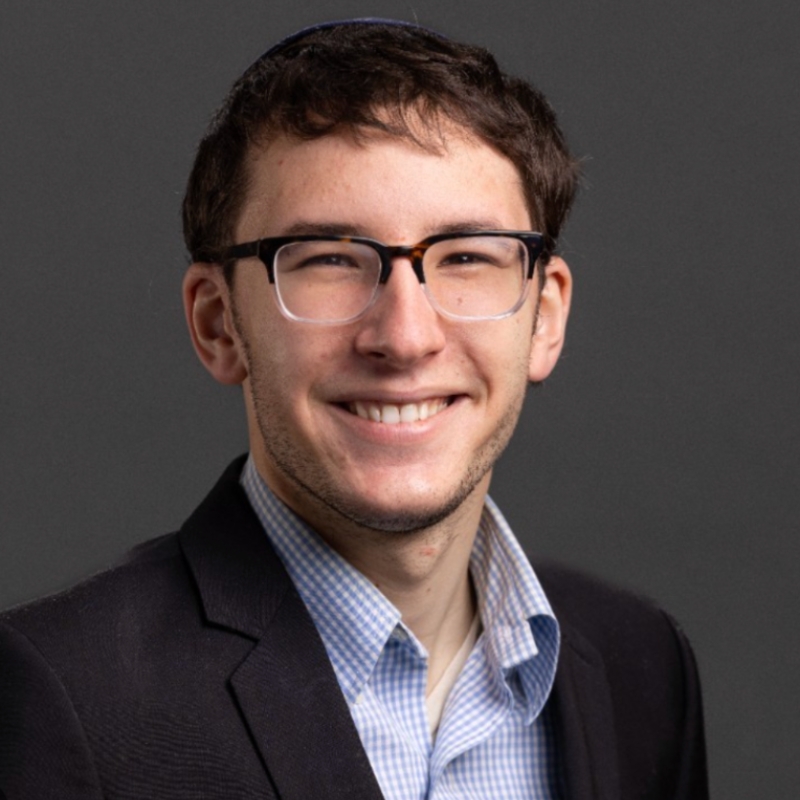There are terms and phrases in the Jewish canon used so often that we cease to be touched by their power. Radical concepts like our being made in the image of God can start to feel platitudinal. We see a great example of one of these concepts in this week’s parshah where we are introduced to the mitzvah, “You shall be holy,” with the helpful explanation, “for I, Hashem, your God, am holy.”(Lev 19:2)
I want to ask a deceptively simple question: What does it mean to be holy?
If each of us wanted to take this commandment seriously and enact it in our lives, what would we do? From praying deeply intentional tefilot and visiting the sick to working for justice and constantly speaking with kindness, on and on for 613 mitzvot to bear in mind at all times. When I imagine myself living a life of holiness that lives up to this Divine standard, I feel overwhelmed by the idea of what it would take.
Find more resources for Acharei Mot.
Rabbi Mordechai Yosef Leiner, the Ishbitzer Rebbe, a 19th-century Hasidic master, teaches in his opus, the Mei haShiloach, that the key here is in our understanding of what the word “holy” means. It can be easy to imagine a holy person as someone completely selfless, totally dedicated to the service of the other and of Hashem, who constantly knows just what the right thing to do and say is.
The Ishbitzer pushes back on this image, arguing that holiness is rightly understood as a kind of readiness. He tells us that the holiness on which our lives should be founded is about cultivating a sense of preparedness to do the right thing at each opportunity that arises, rather than feeling like we have all the answers in advance.
We live in a scary time for our communities and our world. The thought of building up from this low place can feel completely overwhelming. How can we possibly do everything each of us needs to do to oppose rising authoritarianism at home and in Israel, protect our neighbors, and defend Jewish values? Even if each of us could dedicate ourselves to full-time resistance and organizing work, there is still too much to do.
Find more commentaries on social justice, leadership, and philosophy.
This is why the Ishbitzer’s insight is so valuable. Holiness is not about attaining some kind of moral and spiritual perfection, but rather cultivating the ability to see and respond to the opportunities to live up to our highest ideals. If we are able to build that quality of readiness to meet each moment as it comes, the Ishbitzer tells us,“then compassion itself will attach to the person who waits for it. It will not forsake one who waits for the words of Torah to enter their heart.”
We don’t have to solve every problem in the world; all that is being asked of us is to meet God where God is, be holy like God is holy — meaning be ready with compassion in the way God is constantly ready with compassion. Rabbi Leiner concludes by saying, “A person must be careful not to turn their back but rather should stand before God face to Face.”
The work is hard, and at times it feels like successes are few and far between, but our tradition tells us that this is exactly the moment to live up to all we can be and meet the Divine face to Face in compassionate readiness, and in holiness.
Rabbi Jonah Winer (he/him) joined T’ruah as director of learning in March 2025. He was born and raised in Toronto and after earning a BA in Religious Studies at McGill University, was ordained by Yeshivat Chovevei Torah in New York. While there he worked as a Rabbinic Intern at NYU’s Bronfman Center and the Kehillah of Riverdale. After ordination, he spent three years working at Hillels, most recently as Senior Jewish Educator and Orthodox Rabbi at Brown RISD Hillel. Jonah lives in Providence, RI, with his wife, Emily, who serves as a rabbi of Congregation Beth Sholom, their daughter Selah, and their dog, Barley.

